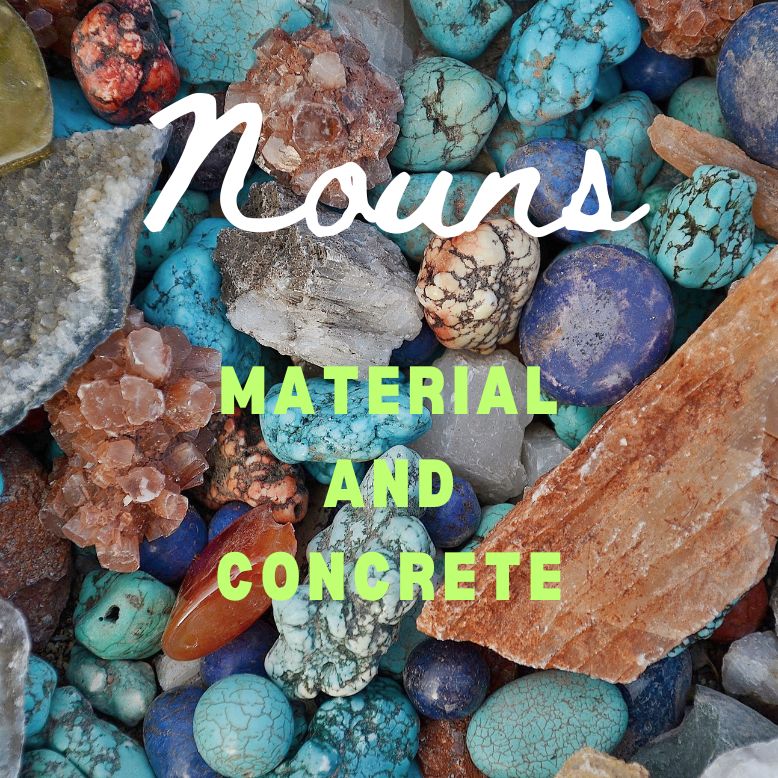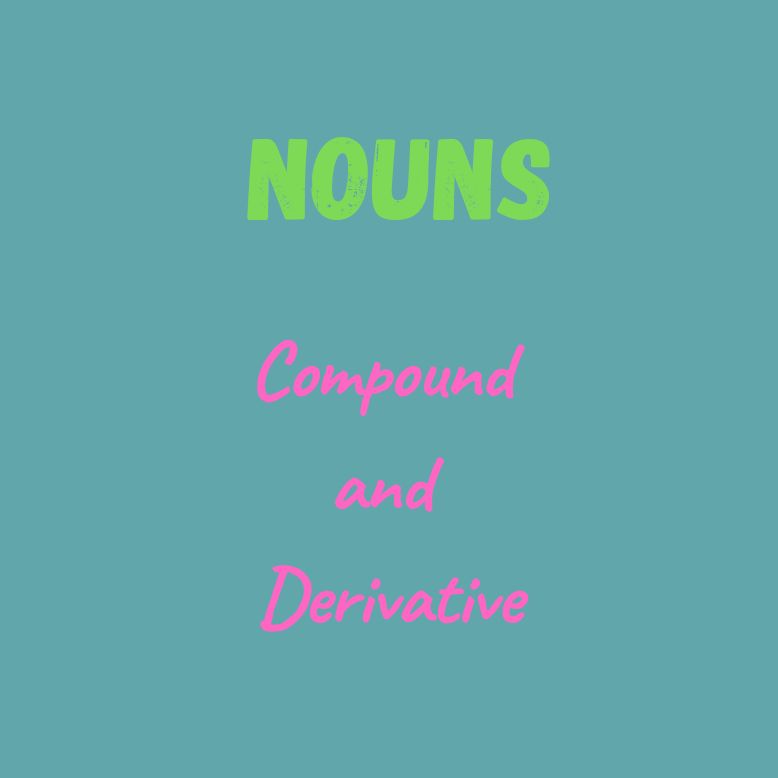Category: grammar

Concrete and Abstract Nouns
Concrete nouns are a type of noun that refer to tangible, physical objects that can be perceived by the five senses: sight, hearing, touch, taste, and smell.Abstract nouns are a category of nouns that represent ideas, concepts, qualities, or conditions that are not tangible and cannot be perceived through the five senses (sight, hearing, touch, taste, and smell).

Material and Concrete Nouns
Concrete nouns encompass a broader range of physical objects and entities. Material nouns are a subset of concrete nouns, and not all concrete nouns are material nouns.

Compound and Derivative Nouns
A compound noun is a type of noun that is formed by combining two or more words to create a single, unified noun with a specific meaning.Derivative nouns are nouns that are derived or formed from other parts of speech, often through affixation (adding prefixes or suffixes) or other word formation processes.

About Nouns. Common and Proper Nouns
common nouns are general and refer to non-specific entities, while proper nouns are specific names used to uniquely identify individuals, places, or things. The key difference is in the level of specificity and the capitalization of proper nouns.

The place of Prepositions
In English grammar, prepositions typically come before nouns or pronouns to show the relationship between the noun or pronoun and other words in a sentence. The placement of the preposition depends on the structure of the sentence and the specific preposition being used.